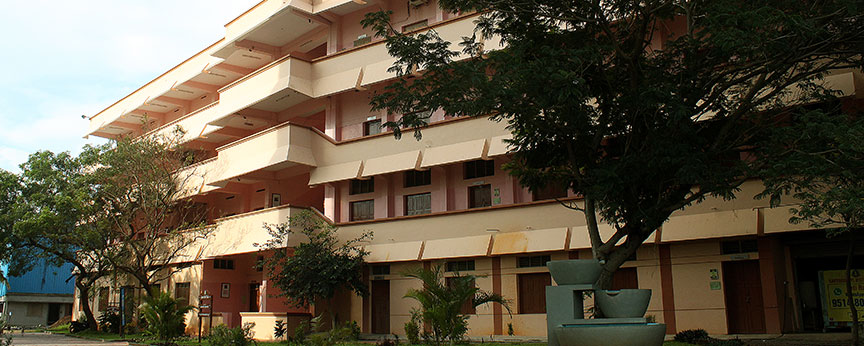
The department of Mechanical Engineering was started in the year 2003 to offer under graduate degree program in Mechanical Engineering. The department has grown from strength to strength from its inception and currently having 29 well qualified, experienced and dedicated faculty with PG degree specialization in all inter-disciplines of Mechanical Engineering. Ten faculty members with PhD and Nineteen faculty members are intensively involved in research to pursue their doctoral degree. The department provides stimulating environment for research activities under the supervision of Professors, who are holding Ph.D. degree from the prestigious institutions like Indian Institute of Technology and Anna University. They are the approved supervisors of Anna University Chennai for guiding Ph.D. students.
MEGX was conceptualized as an association for budding Mechanical Engineers of SXCCE. The association is incessantly involved in organizing special lecturers, seminars, workshops, etc to keep in track with the up-and-coming trends by inviting eminent professionals from academic and industry. The Indian Society for Technical Education (ISTE) Chapter is functioning to assist in the development of top quality professional engineers. They have organized a one day seminar on “Energy Auditing and Energy Management in Domestic and Bulk Utilities”. Society of Automotive Engineers (SAE) India is a society of people in the automotive domain and the college has SAE Collegiate Club. Indian Society of Heating Refrigeration and Air Conditioning Engineers (ISHRAE) Chapter is functioning quite effectively in the institution. It is a premiere technical society meant exclusively for AC & R community and provides excellent opportunities to interact with professionals and industry leaders. The Energy Club of SXCCE has active participation in energy conservation and encourages renewable energy utilization. Recently the process of ‘energy audit’ was initiated in the college premises.
In order to meet the rapidly growing energy needs of our country and to contribute in this major thrust area, the department is offering PG course in Energy Engineering since 2010. The department students are encouraged and motivated by providing amenities to translate their theoretical knowledge with mini projects, field level experience, etc. The research facilities include PV power Solar Energy System, Bio-fuels, Gasifier, IC Engine with data acquisition system, etc. The bio-gas plant installed is running on night soil and kitchen waste along with solar water heater meets the partial energy needs for cooking in the hostel.


 IOB PAY .
IOB PAY .